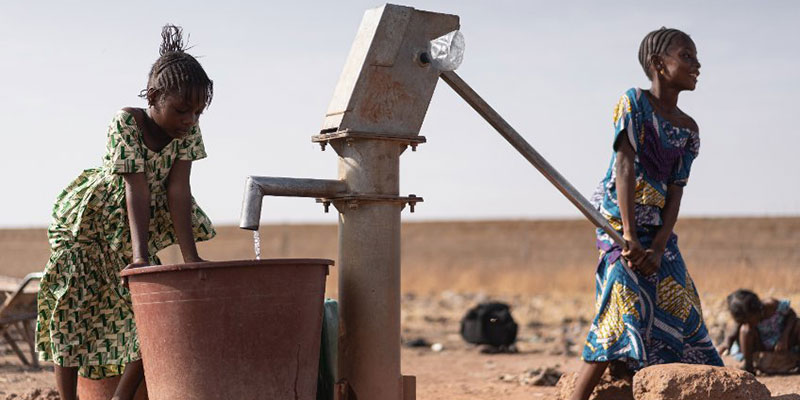Some consider Africa dry because of unequal distribution and economics, with water-rich but sparsely populated expanses punctuated by densely populated cities.
Some say the resources there are rich, and just need better management and treatment
Africa is one of the world’s driest continents. Many rural Africans have subpar drinking water and sanitation. By 2030, high water stress is likely to displace as many as 700 million people. So, why are the British Geological Survey (BGS), WaterAid, and other researchers painting an entirely different picture of Africa’s water resources?
A 2016 article by hydrologist Pradeep K. Naik, director of the Centre for Hydrological Sciences and Communication, asserts that many of the continent’s water problems are rooted in economics, not hydrology, and the notion of Africa as a dry continent is a myth. A 2020 joint study by the British Geological Survey (BGS) and WaterAid echoes the conclusion.
Rich in Natural Resources
Africa represents more than 20% of the earth’s land area and has a vast wealth of natural resources. Still, it remains one of the least-developed continents because of interlinking problems related to health, agriculture, productivity, education, conflict, and political instability.
Taken as a whole, Africa is an economically poor continent with less access to foreign capital, yet it is rich in surface water and groundwater. While annual per-capita groundwater recharge in North Africa is approximately 38,000-92,000 gallons (144-350 m³), the numbers climb to well above the level of water stress in some subregions at 634,000-2.6 million gallons (2,400-9,900 m³).
The BGS/WaterAid study found that most African countries have enough water to survive five years of drought, and many could last more than 50 years. About 2% of Africa’s groundwater is recharged every decade, including much of the groundwater found in populated regions. If most sub-Saharan countries were to start pumping 130 L/d per person, it would use no more than 25% of renewable groundwater. Many would use less than 10%.
Water Scarcity Is Economic and Political
According to Naik, Africa is considered dry because of unequal distribution and economics, with water-rich but sparsely populated expanses punctuated by densely populated cities. Africa hosts 15% of the world’s population, yet it holds an impressive 10% of the world’s fresh water.
So, why is renewable African groundwater going untapped? Virginia Newton‑Lewis, senior policy analyst at WaterAid, said that tapping the resource will require investment in research, mapping, and monitoring of groundwater, as well as sustainability education for locals. She explained:
It isn’t an intractable problem, it’s a problem of political and financial prioritization. This investment is the missing piece needed to complete this water-security jigsaw puzzle.
Naik said most African countries can solve their water problems at the municipal level with better governance, and the issue is not scarcity but whether nations can supply adequate, reliable, clean water affordably without public inconvenience. He also asserted that lack of consistent maintenance is more of a problem than lack of infrastructure.
Naik recommended smaller infrastructure, watershed management, efficient irrigation, diversification of water sources, and transboundary water sharing. Alternate sources of water for diversification include wastewater reuse.
One solution is decentralized, packaged wastewater treatment units, like Fluence’s Aspiral™, which provide high nutrient removal with low energy requirements and minimal maintenance.
With Aspiral™, wastewater from municipalities can be treated and safely reused for irrigation in agricultural areas. In densely populated cities, Aspiral™ can provide water for nonpotable uses such as toilet flushing, so drinking water need not be wasted.
Another option is water treatment. While there may be a lot of water available, it may not be safe to drink. Reverse osmosis technology, like Fluence’s packaged NIROBOX™ units, can treat polluted water to drinking water standards.
Rethinking African Water Shortage
In his 2016 article, Pradeep K. Naik summed up the water problems facing Africa and the rest of the world, particularly in light of climatological considerations:
Africa does have water problems, but much [sic] of these problems are economic, not natural, although water crisis due to global climate change and ENSO phenomena is an issue of concern for the future. But such problems are universal, and do not impact Africa alone. The myths of water crisis in Africa shall remain as long as people believe in them.
Fluence is active in Africa with small-scale, decentralized applications. The company’s Water Management Services can provide infrastructure in areas with insufficient access to capital using performance-based financing models, where Fluence is also responsible for long-term maintenance. Contact Fluence to discuss flexible financing options for updated infrastructure.

